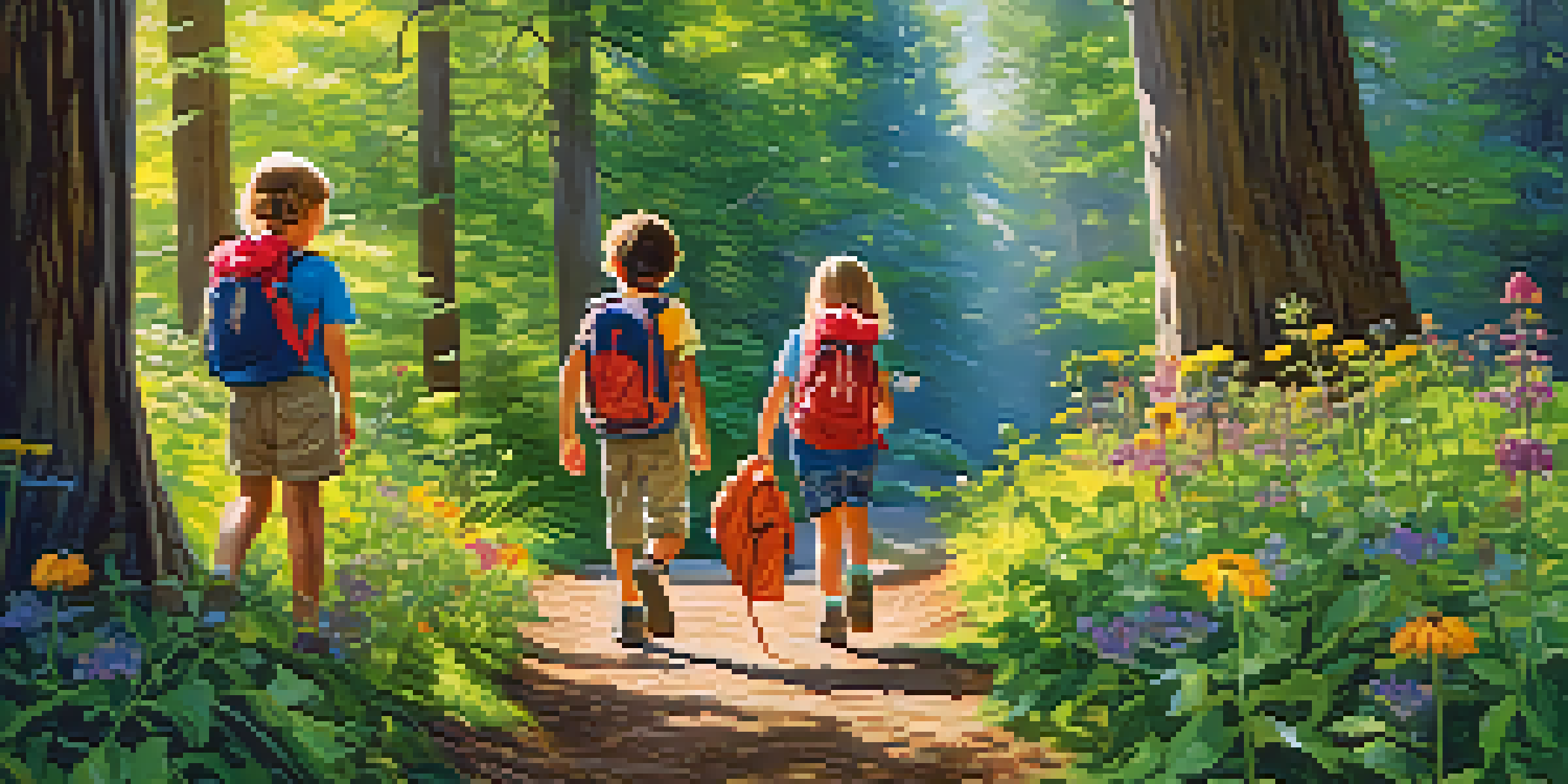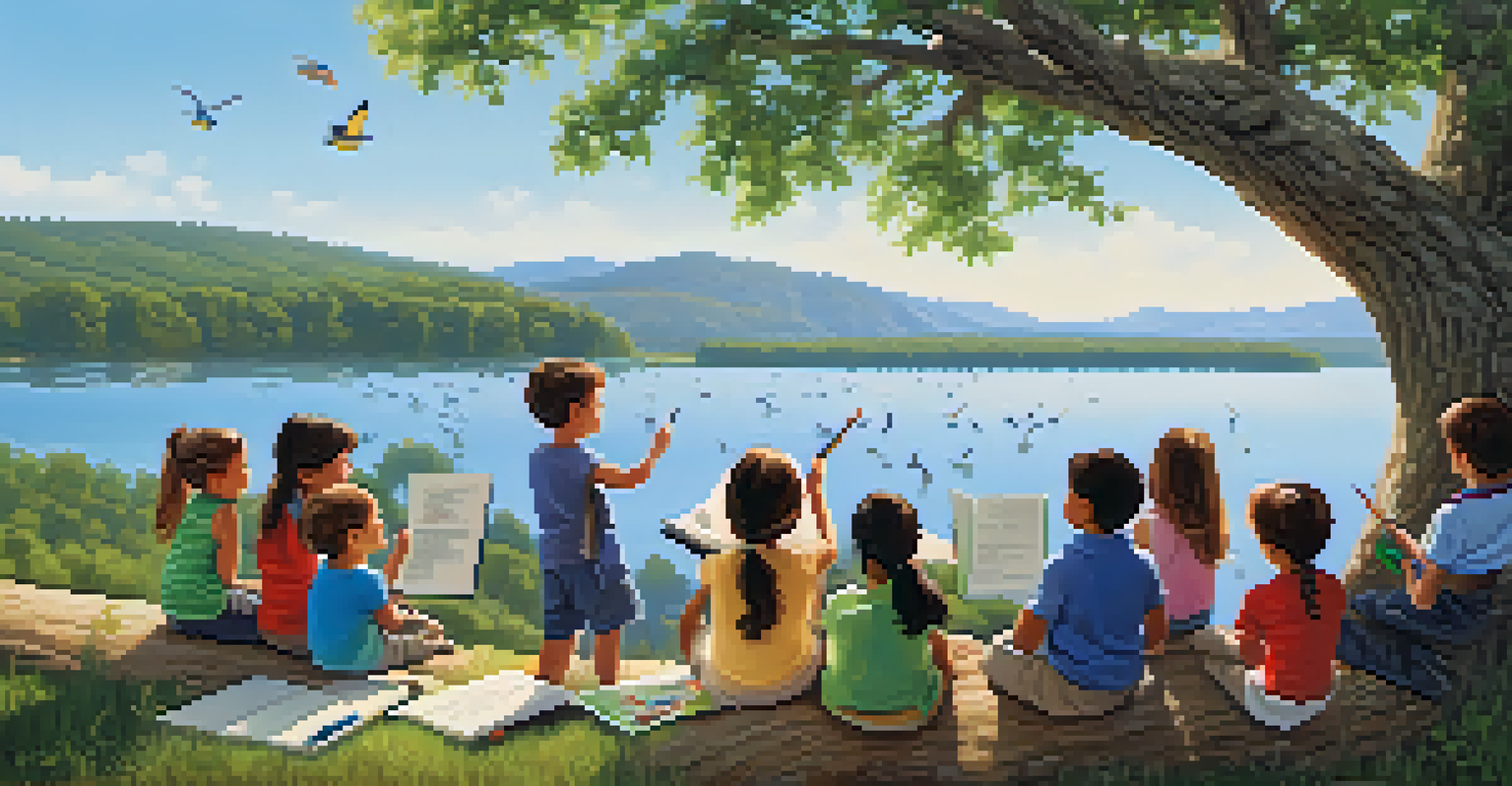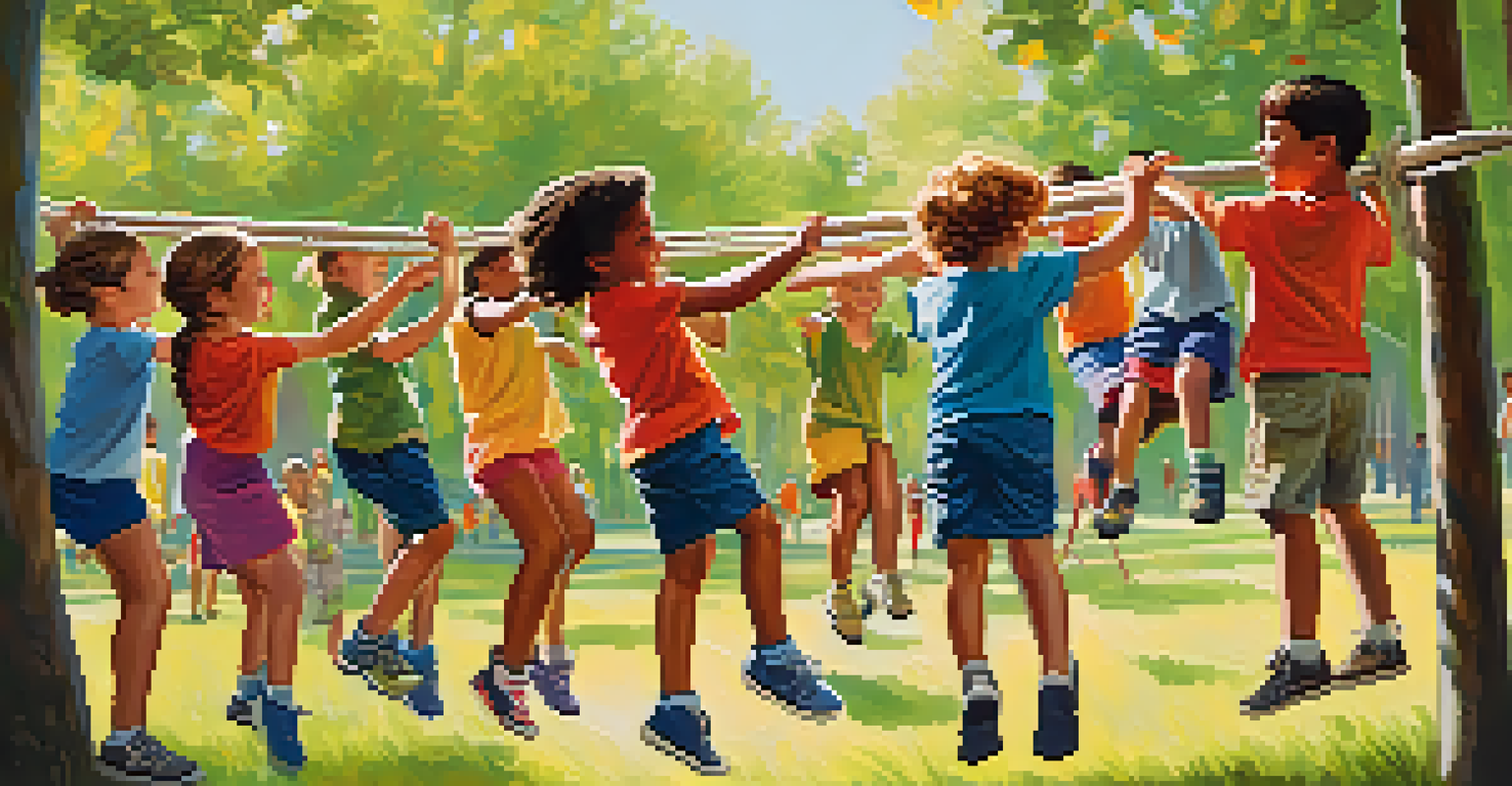Exploring Outdoor Education Programs for Kids in Austin

Why Outdoor Education Matters for Kids
Outdoor education plays a vital role in children's development, offering experiences that classroom learning simply can’t match. It encourages curiosity, fosters resilience, and enhances problem-solving skills through hands-on activities in nature. By engaging with the environment, kids learn to appreciate the world around them, which is essential for their growth.
The best classroom and the richest cupboard are roofed only by the sky.
Moreover, outdoor education helps improve physical health by promoting active lifestyles. Whether climbing trees, hiking trails, or participating in team sports, children develop their motor skills and overall fitness. This physical engagement is crucial in combating the rising trend of sedentary behavior among kids today.
Additionally, these programs provide opportunities for social interaction and teamwork. Children learn to communicate effectively, share responsibilities, and work collaboratively towards common goals, building valuable interpersonal skills that benefit them in all areas of life.
Top Outdoor Programs Available in Austin
Austin offers a variety of outdoor education programs designed to cater to different interests and age groups. For instance, the Austin Nature & Science Center provides engaging activities like nature hikes and wildlife observation that spark children's interest in the natural world. Programs like these not only educate but also instill a love for the outdoors.

Another fantastic option is the YMCA's Camp Moody, which integrates outdoor adventures with environmental education. Kids can enjoy kayaking, rock climbing, and even learning about local ecosystems. Such programs help children develop a deeper understanding of nature while having fun.
Outdoor Education Boosts Development
Engaging with nature enhances children's curiosity, resilience, and problem-solving skills.
Lastly, the EcoRise program promotes sustainability and environmental awareness through hands-on projects. Kids learn about conservation and how to protect their surroundings, making it a great choice for those passionate about the environment. These diverse offerings ensure that every child can find a program that resonates with their interests.
Benefits of Nature-Based Learning
Nature-based learning encourages children to explore and discover on their own terms. By stepping outside the confines of a traditional classroom, kids are more likely to engage with their surroundings actively. This approach not only enhances their understanding of scientific concepts but also nurtures their creativity.
In every walk with nature, one receives far more than he seeks.
Furthermore, studies show that spending time in nature can significantly reduce stress and anxiety levels in children. The calming effects of green spaces can lead to improved mental health and emotional well-being. This is especially important in today's fast-paced world where children often face various pressures.
Lastly, engaging in nature-based learning promotes environmental stewardship. When children understand how ecosystems function and their role within them, they are more inclined to protect and cherish the environment as they grow. This sense of responsibility is crucial for nurturing future generations of environmentally conscious individuals.
How to Choose the Right Outdoor Program
Selecting the right outdoor education program can feel overwhelming, but it doesn't have to be! Start by considering your child's interests and personality. Do they thrive in structured environments, or do they prefer more free-form exploration? Understanding their preferences can help narrow down the options.
Next, research the program's curriculum and objectives. Look for programs that emphasize hands-on learning and align with your child’s interests, whether it’s nature exploration, environmental science, or physical activities. Reading reviews and testimonials from other parents can provide valuable insights into a program's effectiveness.
Austin Offers Diverse Programs
The city provides various outdoor education programs that cater to different interests and age groups.
Lastly, consider logistics like location, duration, and cost. Ensure that the program fits your family's schedule and budget. A well-planned outdoor education experience can be incredibly rewarding, so take the time to find a program that meets all these criteria.
Safety Considerations in Outdoor Education
Safety is a top priority when it comes to outdoor education programs. It's essential to ensure that the organization adheres to safety guidelines and has qualified instructors who are trained to handle emergencies. Ask about their safety protocols and how they prepare for various situations.
Supervision is another critical aspect. Programs should maintain appropriate adult-to-child ratios to ensure that each child receives adequate attention and support. This helps create a safe environment where kids can learn and explore without undue risk.
Lastly, consider any specific needs your child might have. Whether it's allergies, medical conditions, or emotional support, communicating these to the program coordinators can help them provide the best experience for your child. A safe, supportive learning environment is crucial for maximizing the benefits of outdoor education.
Integrating Outdoor Education at Home
You don't have to wait for a formal program to introduce outdoor education to your child's life. Start by incorporating nature walks and outdoor play into your family routine. Encourage exploration by visiting local parks, nature reserves, or even your backyard, allowing your child to connect with their environment.
You can also create simple learning activities at home, such as gardening or birdwatching. These activities not only educate but also offer opportunities for hands-on experience and responsibility. For instance, growing plants can teach children about ecosystems and the importance of caring for living things.
Nature Learning Benefits Mental Health
Spending time outdoors significantly reduces stress and nurtures emotional well-being in children.
Lastly, leverage technology to enhance outdoor learning. Use apps or guides to identify plants and animals during your outings, turning your explorations into mini-adventures filled with discovery. By fostering a love for the outdoors at home, you help your child build a foundation for lifelong learning and appreciation of nature.
The Lasting Impact of Outdoor Education
The benefits of outdoor education extend far beyond childhood. Kids who participate in these programs often carry the skills and values they learn into adulthood. Whether it’s a strong sense of environmental stewardship or enhanced social skills, the impact can be profound and lasting.
Moreover, individuals who have had positive outdoor experiences are more likely to engage in outdoor activities as adults, promoting healthier lifestyles. They tend to appreciate nature more and may even become advocates for conservation efforts, ensuring that future generations also benefit from the great outdoors.

Ultimately, outdoor education helps shape well-rounded individuals who are not only knowledgeable but also empathetic and responsible. By investing in these programs, parents are not just enhancing their child's education; they're nurturing future leaders who will care for their communities and the planet.